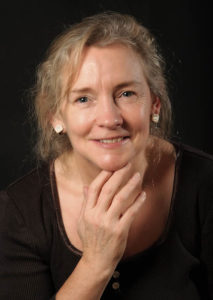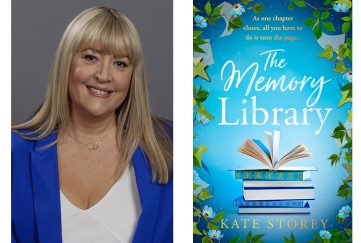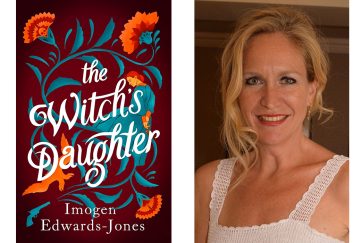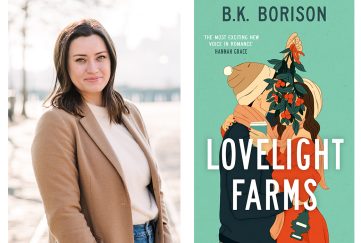Q&A With Author Katie Hutton
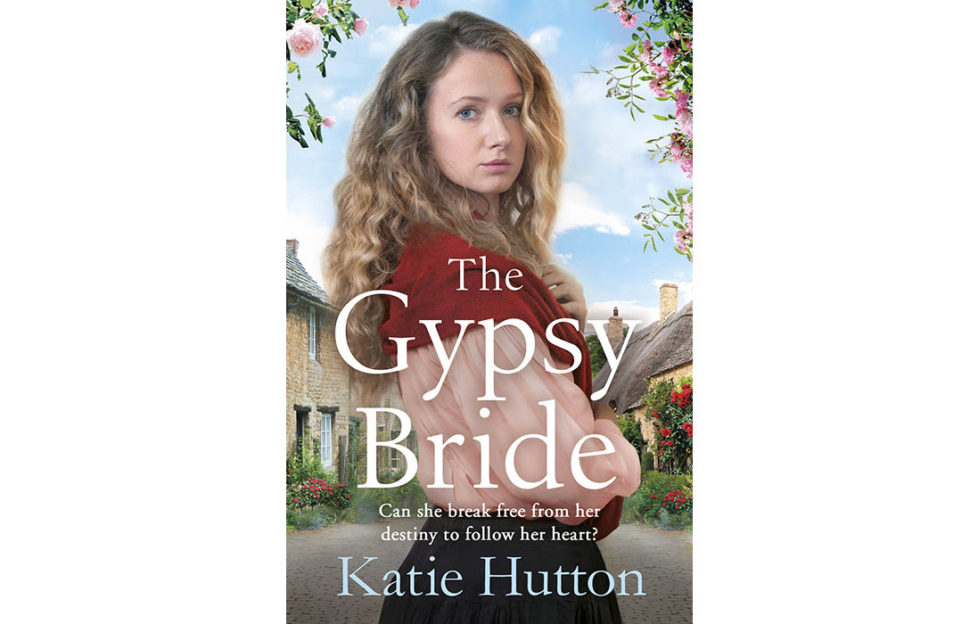
In our latest issue of My Weekly (on sale June 23-29, 2020), all our fiction stories are written by some of this year’s best and most inspiring debut authors. Here, Katie Hutton talks to us about writing for My Weekly, the fascinating research she undertook for her debut novel and her writing inspiration…
Don’t miss Katie’s wonderfully romantic short story, The Crab and Winkle Line, in My Weekly (on sale June 23-29, 2020). We’re also giving 5 readers the chance to win a copy of Katie’s novel, The Gypsy Bride, here.
When did you first start writing fiction?
I started writing fiction in the mid 1990s when I wrote a romance in my garden shed, but didn’t manage to get it published. About the same time though I did get a non-fiction article published, the very first time I got paid for writing, and it was in My Weekly! I went on writing, on and off, but only really got down to it seriously about four years ago, and haven’t stopped since.
Tell me a bit about your journey to getting your first novel published?
I’d already written another historical novel, set in my native Ireland, but hadn’t got it published, so I just got on with the next one, which became The Gypsy Bride. I also started getting short stories published in magazines and online, which gave me confidence and built up my writer’s CV. I entered The Gypsy Bride (it had a different title then) into a new novel competition with the Historical Novel Society and though it didn’t win, it made the last fourteen, which really encouraged me. Then I got my lovely agent and really quickly, within a few weeks, was offered a contract with Zaffre. There was just one snag. They wanted two books in the Memory Lane style. I ate some chocolate buttons (always helps!) and thought – I’ll do a sequel, about the next generation. I’m revising that one now.
What inspired the idea for your first novel? Tell me a bit about what you hope readers will love about it…
I wanted to write something rural, and to use some family history, as my great-great grandfather was a carter in Oxfordshire and an evangelical preacher with the Primitive Methodists. I’ve a photograph of him and he looks absolutely terrifying, but the ‘Prims’ did great work defending the rights of agricultural workers and educating their children, regardless of whether they were Prims or not. I do a lot of research for my novels; I found a book called A Shepherd’s Year, published in 1910, in an Oxfam shop. There was a chapter in it about the Romani Gypsies who would move across the company with the seasons, working on farms, and I knew then my hero would come from that community. I am really grateful to the Romani family I went to meet in Kent who very patiently answered all my questions. The book couldn’t have been written without them, nor without the help of the volunteers at the Primitive Methodist Museum in Englesea Brook in Cheshire (a great day out, by the way).
I hope readers will love this book first and foremost because it is a love story, where the odds are stacked very high against Ellen and Sam. I hope they will also enjoy the portrait I have tried to paint of a vanished way of life.
Tell me about authors who inspire you and books which have made a particular impression on you…
A children’s author I loved was Leon Garfield. Later, I read all of Thomas Hardy and still find him an inspiration. Contemporary writers of historical fiction whom I really admire, because they really take you to another place, include Jo Baker, author of Longbourn, written from the point of view of the servants in Jane Austen’s Pride and Prejudice, and Tracy Rees. I’ve just read The House at Silvermoor, set in a Yorkshire mining community at the end of the 19th century. A special mention too for my fellow Zaffre author, Elizabeth Woodcraft, whose books are set in the 1960s in Chelmsford, and inspired by the diaries she kept at the time, and for another début novelist, Lynn Johnson; her The Girl from the Workhouse is set in early 20th century Burslem in the Potteries, and she really brings that period and place to life.
How did you feel when you heard the news that your first novel had been accepted for publication?
I felt euphoric, and humbled at the same time. I didn’t sleep that night for excitement. You have to write a book because you want to write it, first and foremost. But getting it into print… there’s no feeling quite like it.
What tips would you give to aspiring novelists?
Read lots! I’m getting published now in my 50s, but if I hadn’t devoured books as a child and a teenager, I don’t think I’d ever have managed it. Write something every single day, even if you don’t feel like it, or you’re too tired, or you think you’re writing rubbish. You can always revise it later; you can’t revise a blank sheet of paper. Make friends with librarians. They mightn’t be reading all the books on their shelves, but as one said to me, “I read a lot of dust-jackets, and I can also tell you what’s most popular with the readers.” Find someone who can give you constructive feedback on your writing, perhaps through a writing group. Find also somebody who supports and encourages you. My husband does that, and so does a dear writer friend, Anne Booth. She’s a children’s and Young Adult author, so we’re not writing the same kind of books, but that doesn’t matter. She’s there for me.
Where do you find your writing inspiration?
Everywhere, in the smallest things. Sometimes it can be family anecdotes. Old paintings and photographs help, to get the details of clothes and hair right. I go to museums, and pester academics with questions. I read a lot of history books, but also books written at the time I am writing about, so for instance, for The Gypsy Bride I read novels that were serialised in Primitive Methodist magazines. I’ll mention librarians again. The staff of Nottingham Central Library were so helpful (with research for the sequel to The Gypsy Bride) that I set some scenes in the old public library building.
What’s next? Are you working on another book?
Yes. As well as revising the sequel to The Gypsy Bride, for publication next year, I am also working on the first draft of a novel set in the Lake District and in Barrow-in-Furness in the years after World War II. It was inspired by a couple I knew as a child. She had gone to work as a Land Girl on a farm where a German Prisoner of War was assigned. She hated him on sight, because her brother had been killed in the war. The moment he saw her, he knew she was the girl he wanted to marry, though he had no English then to tell her so. Theirs was a great love.

